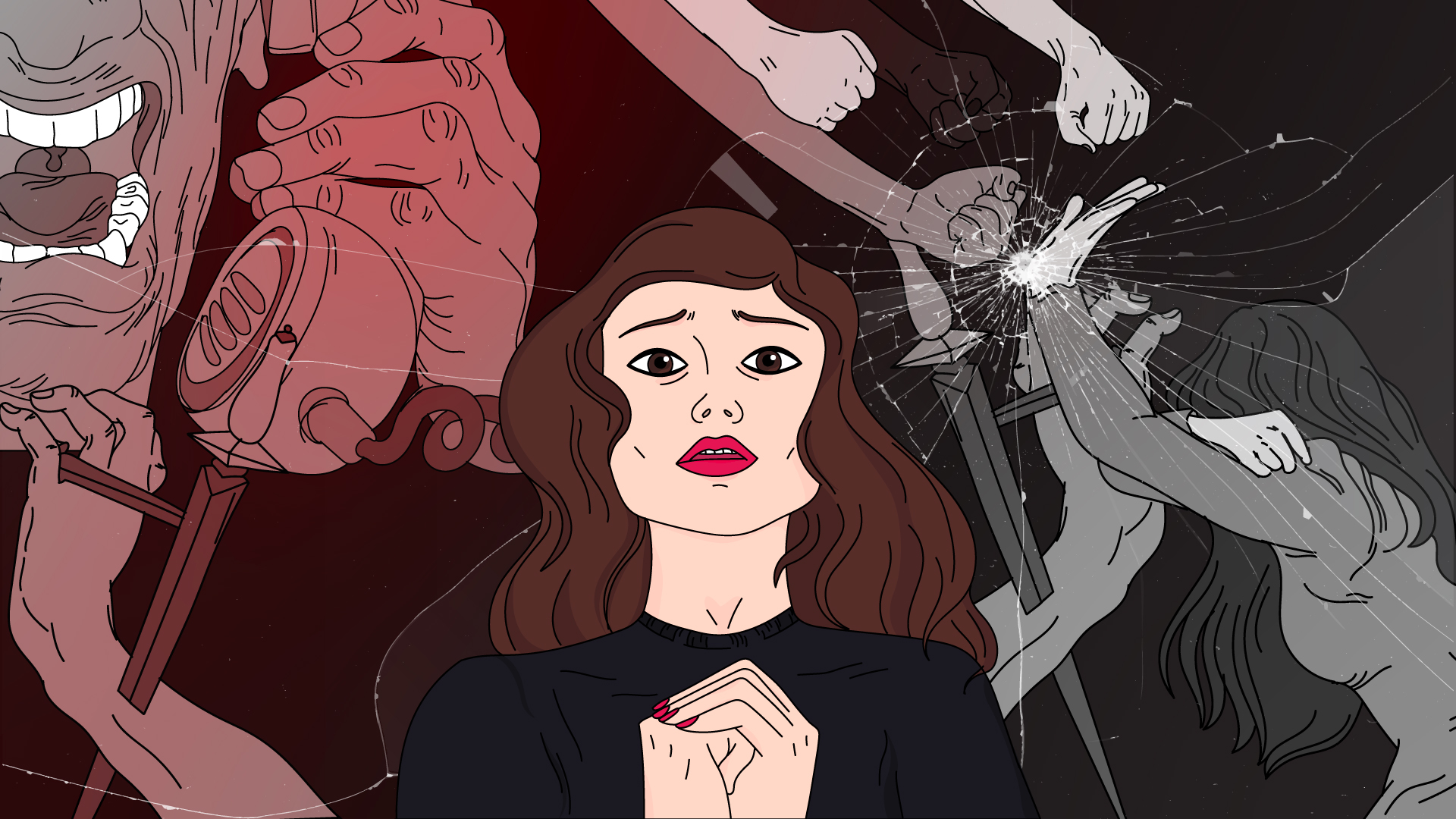
Voices of women from Kosovo’s shelters
Resistance in the face of ongoing gender-based violence
Feminist activists contend that all cases of femicide in Kosovo could be avoided if law enforcement and justice institutions, from the police to the judiciary, protected women.
In addition to further entrenching violence, this lack of mobilization reinforces distrust in institutions. Victims mostly seek state intervention only when the danger to their lives becomes unavoidable — in many cases, after they have endured years of violence. This violence often occurs behind the supposedly safe walls of the home. Frequently, it not only involves the partner but is a joint act between family members from both sides.
Influenced by patriarchal practices, victims’ families tend to ignore the oppression of women within their homes. The victims’ own families dismiss their pleas for help due to outdated beliefs that a woman owes everything to her husband.
When they manage to escape abusive families, shelters offer victims a temporary safe place. Shelter staff provide women with psychological support. The women can stay for up to six months, longer in exceptional cases. In Kosovo, there are eight shelters licensed to shelter victims of domestic violence.
K2.0 visited these shelters and listened to stories of resistance in the face of cyclical violence. Many victims have sought refuge in these shelters multiple times. Their stories are linked by a common thread — the experience of violence at their partners’ hands and those of their partners’ families.
Nita, Valmira, Blerta, Anita and Mirjeta, whose names have been changed for confidentiality, like many other women abandoned by their families, stand, often alone, awaiting the state’s support to grant them economic freedom and right to inheritance.
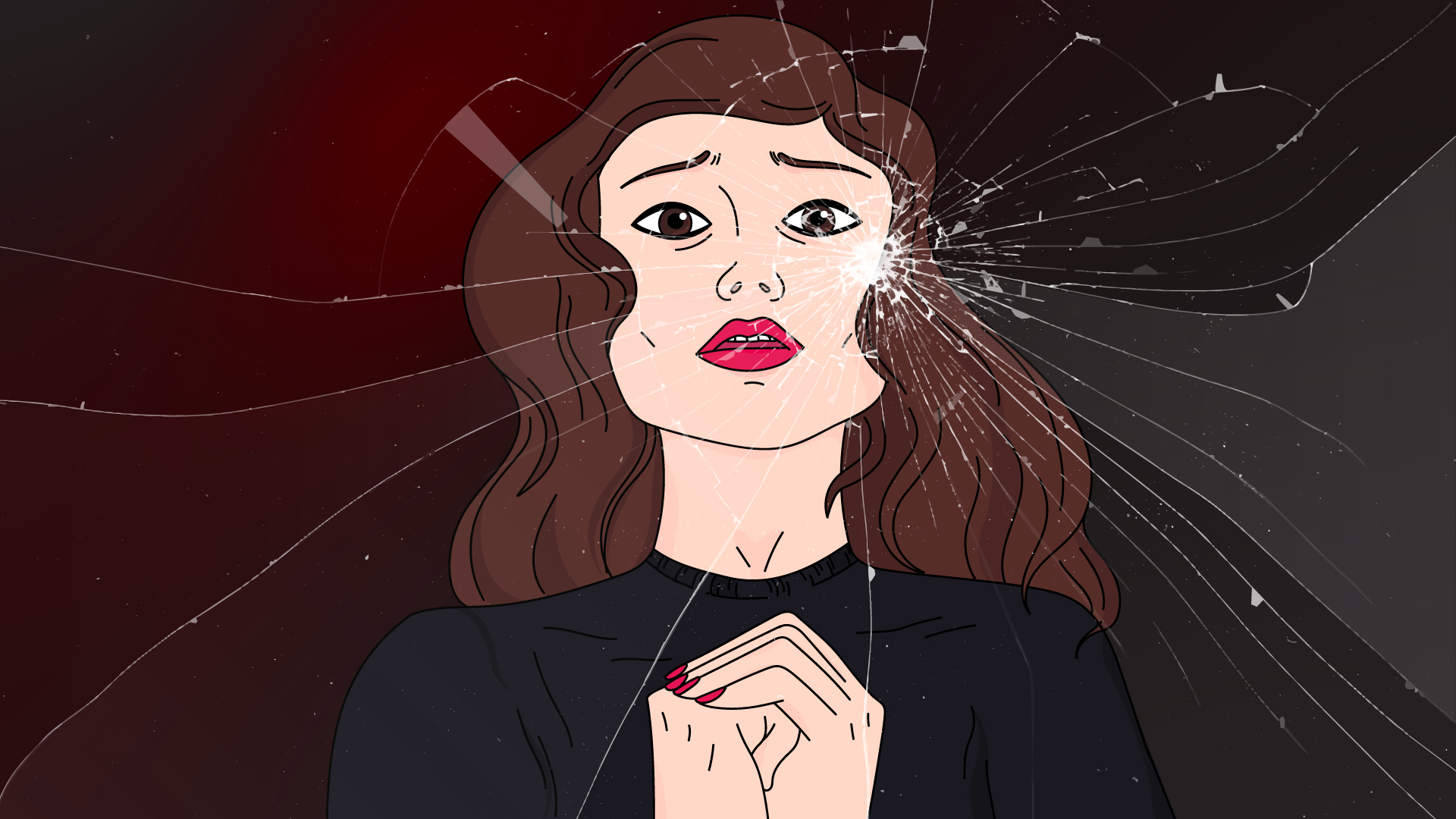
— Nita —
The sunlight that penetrates through the curtains casts a warm glow on Nita’s face, in sharp contrast to her pale face and the dark circles around her swollen eyes.
There is a mixture of newfound comfort and lingering fear in her gaze as she sits in the corner of a modestly decorated room in one of Kosovo’s shelters. At the age of 25, Nita’s youthful appearance is deceiving and covers the heavy burdens that followed her up until her new temporary residence.
The silence in the room is only disrupted by the soft murmurs of her little girl, who, deep in play, diligently builds tall buildings with Lego bricks. In a stark contrast to daughter’s ambitious constructions, Nita tells how her life with her partner destroyed her freedom. Nita remembers the early days — a fleeting period of good times — before violence turned her into someone she no longer recognizes. She describes herself with a mixture of hauntedness and grief. Soon after she blames herself, or her own hazy perception, which she said made her unable to recognize the man he really was.
“It is my fault. I don’t know how I allowed it to happen,” she said, her words sounding more like an attempt to explain things herself than anyone else.
Reliving various memories from over the years reveals scenes that become progressively more disturbing. She remembers lying on the floor, choked by the pain of him hitting her and his voice booming across the room with accusations of unfaithfulness, accusations that only existed in his mind. She recalls successive attacks, insults and threats against her life.
She is haunted by the sentence: “You are the only person in the world who deserves to die for nothing.”
At one point, Nita stops telling her story. She is gripped by a wave of shame as she gathers herself to articulate another traumatic experience, when he beat her so badly that her skin turned blue from the bruises. First he accused her of being with another man, then he beat her. He used Nita’s lack of excitement during intimacy as justification for this.
“I cried because of the pain, but also because of the emotional pain, how he doubts me and sees me as a person who is unfaithful,” she said. “This also showed his ignorance about how the body of a woman works. If you don’t understand something, you ask. You don’t beat me to a point where I don’t recognize myself.”
Day by day, her freedom dwindled and the scope of her daily life diminished. The restrictions were unmistakable: fading friendships, the driver’s license that he did not allow her to get and the education he forced her to abandon.
As she speaks, she turns her head towards her daughter, the only source of joy in her marriage, which she otherwise calls a “prison.”
Once, she believed that having a child would soften her partner. At least, that’s what others told her. Initially pregnant and hopeful, with every passing month she faced the opposite of hope. His violence against her escalated and the feeling of helplessness only increased.
The memory of their wedding day is bittersweet. They got married while Nita was pregnant and during the COVID-19 pandemic, which limited their celebration to their home. On her wedding day, despite being tired from her pregnancy, she was the hostess and served all of the guests for the whole day.
As the evening passed, it occurred to her that she hadn’t eaten anything all day, and she approached the table of drinks. He appeared beside her as she was filling a glass.
“Get up and serve, or you will regret it,” he told her.
She left her glass untouched on the table.
Her hope that marriage would change things was quickly shattered after the wedding. She knew there was no justification for the violence. Even though violence had become a constant occurrence, the excuses he gave her for his outbursts continued to shock her. One day, when she was sick, she remembers that he, with unwavering insistence, asked her to eat a banana. Her refusal was met with a beating that left her bruised for days.
However, the decision to abandon him came on another occasion. A short walk with her daughter in the neighborhood ended in another even more brutal attack.
“How dare you go out whenever you want to?” he had told her.
The blood running down her body was the last warning that if she didn’t leave, he might kill her.
So, a few months ago, she ran away to the shelter.
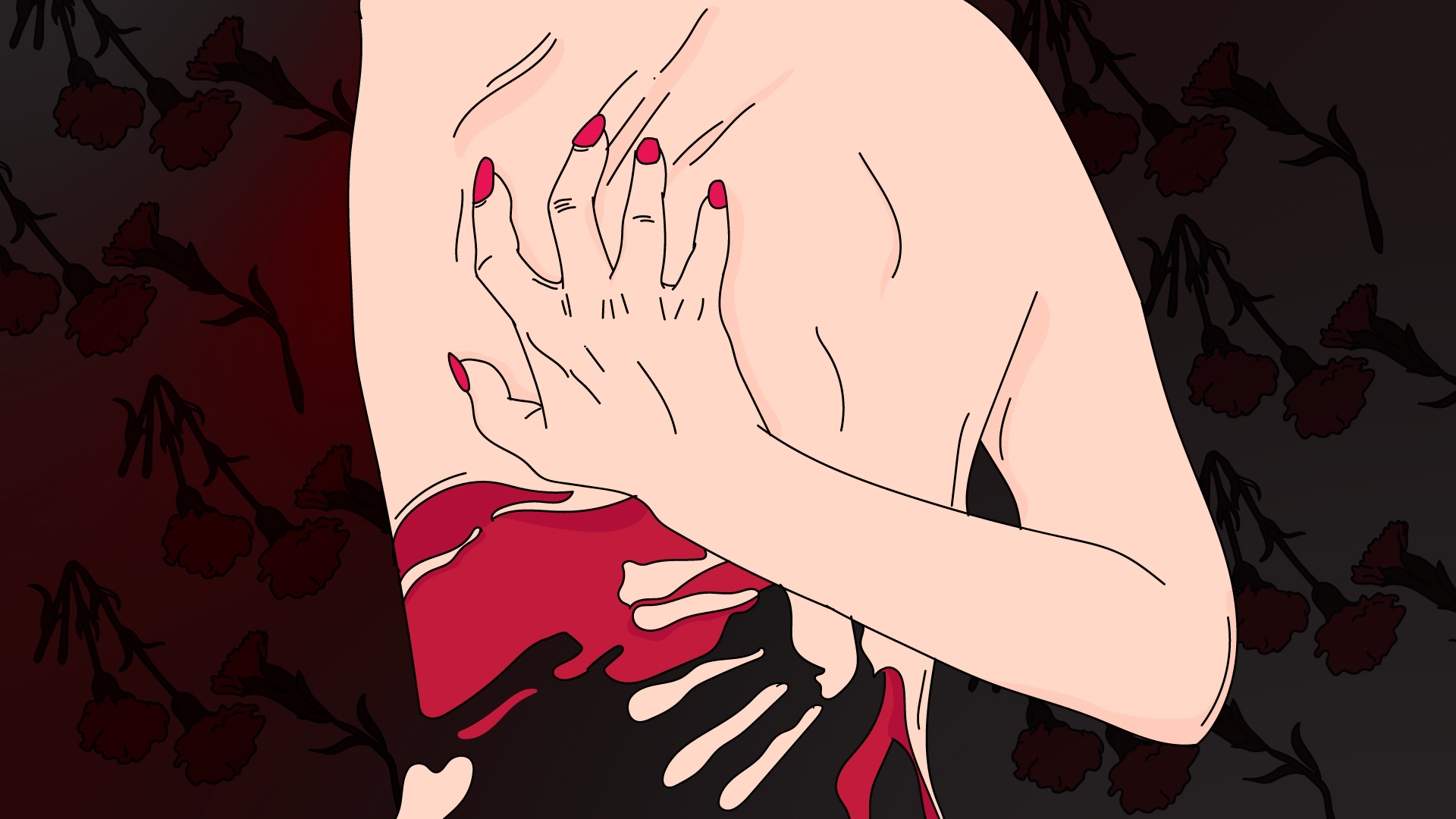
— Valmira —
Valmira, who is in her forties, has a similar story to Nita and many other victims of gender-based violence in Kosovo. These stories tell not of one-time conflicts or specific arguments, but of systematic violence that turned victims’ homes into places of unpredictability and fear.
Valmira’s partner’s methods of abuse were as varied as they were cruel — pushing, dragging, punching, targeting different body parts. At first, Valmira tried to break down the reasons behind each act of violence. Eventually, trying to understand why each beating happened brought a more pressing concern to the surface. She could no longer think about why this was happening. She had to think about ways to survive.
In this suffocating environment of control and suspicion, even the simplest actions like visiting her family or getting dressed for a walk triggered him to attack her.
“Why do you have to go there? Who are you dressing up for?” he kept asking her.
The final straw came on one recent night. Valmira’s sister was back in Kosovo from abroad and in her last days in the city, she invited Valmira to stay at her house. It was a simple request from her sister, but one that set off a chain of events that led Valmira to the shelter.
Valmira had gotten ready and was waiting for her husband to take her to her sister, as he had promised. But as the hours passed, it became clear that he was not coming home. His lack of response on the phone wasn’t a typical delay that could be innocently explained — it was deliberate.
Feeling a mixture of shame and a determination to visit her sister, Valmira decided not to wait any longer and called her sister to pick her up.
While at her sister’s, Valmira learned that her husband had called her father, angry that she had left the house without his permission. Later, on the phone, he asked Valmira to return home by 5:00 a.m. at the latest.
“How can I return at that hour?” Valmira had asked him. “You don’t even want me to get on the bus.”
“Fly,” he had replied emphatically.
Her return home the next day was met with an accusation that she still has difficulty articulating: “You want your sister’s husband? What’s the reason for you to stay there?”
“Don’t say such things. My sister might hear you and you will ruin her relationship with her husband,” Valmira had answered.
But before she was able to finish her sentence, she felt his hands in her hair and his violent grip. Within seconds, he slammed her head against a drawer.
He continued to throw objects at her, grabbing everything in front of him. While she was trying to protect herself from a pair of high heels flying towards her, she suddenly heard the voice of their son in a panic: “He’s killing our mother.”
After the attack, Valmira called her sister, who rushed her to the hospital. It was the first time in the years of abuse that Valmira reported the violence to the police.
Valmira has been staying in the shelter for several months. Meanwhile, her children are with her husband, who told them that their mother left him “to marry another man.”
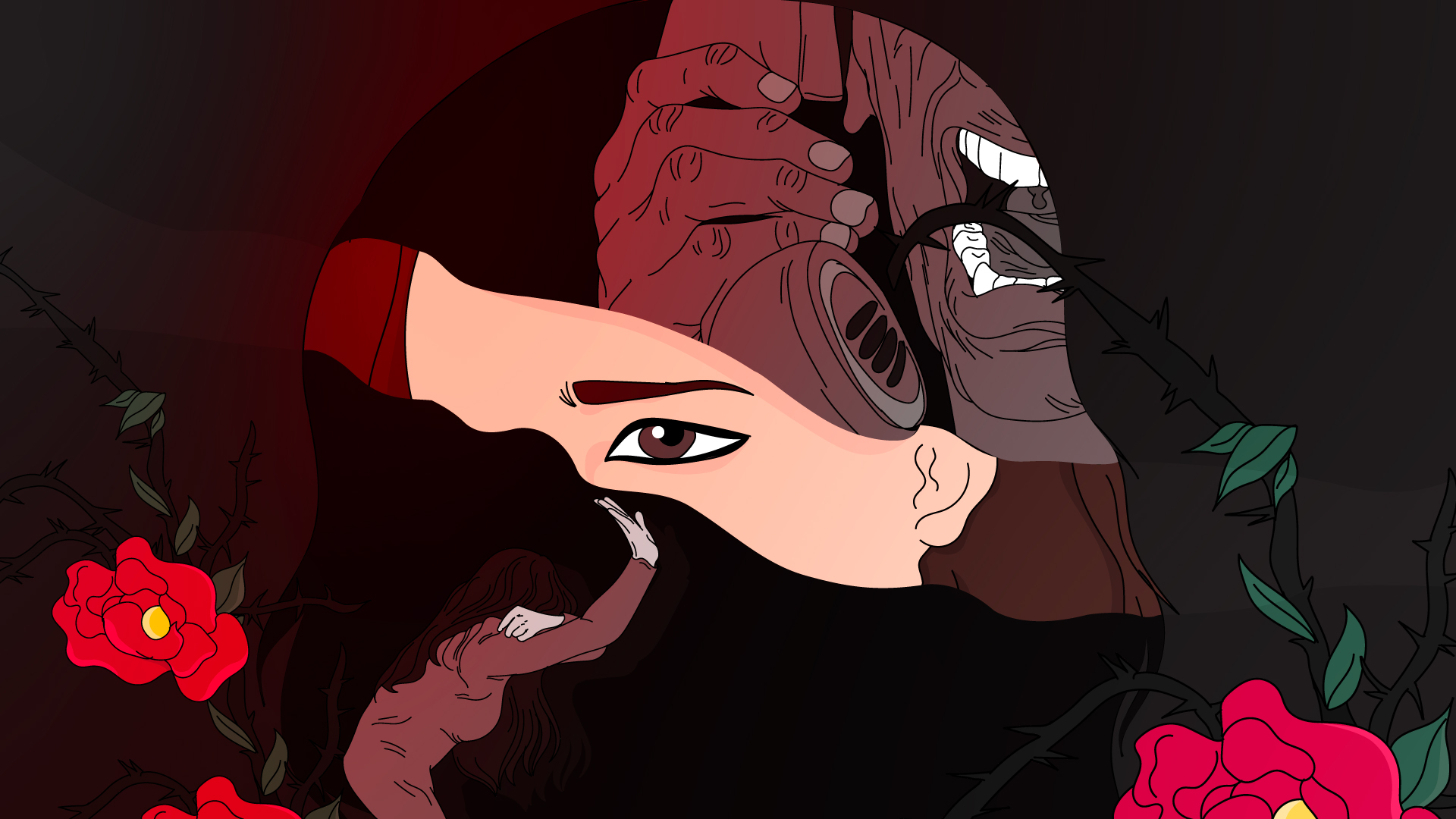
— Blerta —
Blerta, only 19 years old, has found herself in the shelter for the third time. She stayed in a shelter less than a year ago, desperately seeking safety from the constant violence perpetrated by her partner.
Her first experience in a shelter was sometime during childhood, after her parents’ separation. Left to grow up with her grandfather, she went from being under his care to being his caretaker. As Blerta grew up, her grandfather’s health got worse.
After her parents’ separation, Blerta’s father went to prison, while her mother remarried. However, in the eyes of the family, her mother’s choice to remarry was seen as a reason to limit Blerta’s future — her uncles abruptly cut off her education in her second year of high school.
“You will become like your mother,” was their justification.
She said this unhealthy childhood made her feel vulnerable and unprotected at age 17 and eventually led her to a manipulative partner who promised her a different — better — world.
Only three days into their marriage, the kindness that made her fall in love and let her find some peace was gone. This was the first time he used violence.
Two months later, she became pregnant. The violence continued. Her husband isolated her, forbidding her to meet her relatives alone and only allowing her to leave the house under the supervision of his sisters.
“The only happy day was when my son was born,” she said.
This happiness faded quickly. He beat her just three days after she gave birth. The beatings became routine.
Once, while visiting her aunt, he sent her a message that read “I will kill you.”
When she returned home, he threatened her with a knife and punched her. That night, Blerta recalls, culminated in his arrest, a protection order and a subsequent sentence for several months. He assured her that he would not use violence again. After the sentence was over, she returned to him again.
“I endured it because I don’t have anyone, no mother, no brother, no one. I don’t have any help, I have no one else but my son,” she said. “There is no one to tell me that I can continue on my own.”
The violence continued. Blerta recalled a time where his rage towards her caused a doctor from the Family Medicine Center to ask her husband to leave the room where their sick child was receiving medical care.
Days after this disturbing episode, her fear mounted when she heard him say: “You are an orphan. I have you in my hands, you are legally married to me and I can do whatever I want with you.”
Despite having endured even worse violence in the past, it was that day she truly began to fear for her life.
Blerta used Viber to discreetly message the Family Medicine Center she visited days before. She said that she asked them to notify the police and send them her residential address. He caught her while she was texting. In another frenzied attack, he beat her to the point of bleeding before she could run out of the house.
Gathering some strength, she managed to get out and ask for help again. That night, which happened about three months ago, the police escorted her to the shelter.
“Put on your tracksuits, because you will serve whoever comes here”
Mirjeta is in the shelter for the second time. The first time was more than a year ago, and she returned to the shelter a few months ago. Mirjeta did not have a traditional marriage. Her boyfriend took her to live in his house when she was only 17 years old. As soon as she entered the new house, she encountered an unwelcoming environment.
She experienced all forms of violence from her partner and emotional and psychological violence from his mother. Having been in this marriage for nearly two decades, she has spent at least 15 years dealing with abuse. She does not remember whether the initial abuse was physical or verbal and whether it first came from her partner or his mother.
After a year of marriage, she became pregnant, but soon had a miscarriage. The doctor attributed this to the underdevelopment of the fetus, but Mirjeta believes that the excessive and heavy housework she was forced to do contributed to the miscarriage. Even after this experience, and despite medical advice to rest, her partner’s mother insisted that she continue working around the house.
“You have to get up and do the housework. I’ve had as many miscarriages as you, and you’re making a big deal out of it,” Mirjeta recalled her words. “Put on your tracksuits, because you have to serve whoever comes here.”
Verbal abuse, which included humiliation, shouting, offensive and derogatory comments, came not just from her mother-in-law, but other family members as well. Mirjeta’s responsibilities within her partner’s household included a variety of unpaid work. She managed the house, took care of the garden and the animals. She grew and harvested the beans the family sold in the market, from which she didn’t get any money.
In Kosovo, where poverty is common and women’s economic rights are widely disregarded, young couples often live with their extended families — almost always the husband’s family — as a way to cope with financial difficulties and insecurity. However, this extended family environment can be exclusionary and oppressive, especially towards women, as family structures in Kosovar society are deeply patriarchal.
In these extended families, embedded gender norms place the burden of unpaid care work exclusively on the bride. This responsibility, regardless of whether or not the woman works, is mainly transferred from the mother-in-law, while the father-in-law controls the family’s finances.
“Gender-based violence is not violence that is always perpetrated by men. It centers more on the person who experiences it, which overwhelmingly is women. And this violence is mainly layered on several levels of power that are created in the family,” said Liridona Sijarina, a feminist activist. “One of the most violent relationships in the family is the institutionalization of the relationship between the daughter-in-law, mother-in-law and brother-in-law.”
The disturbing reality of living with abusers and enduring abuse from an entire extended family does not occur just in Mirjeta’s house. The shelters are full of victims who have faced various and frequent conflicts with their partners’ family members. In cases where physical violence is perpetrated by a partner in a family environment, it is almost always accompanied or preceded by psychological abuse by other family members. However, despite the frequency of this violence, there is a huge gap in the data, analysis and research examining the dynamics within these families.
“In a mindset and practice where a woman is seen as a ‘slave,’ she becomes easily controlled by anyone in her husband’s family,” said Sijarina. “However, this relationship is significantly more complex and requires more research to explain in detail.”
Even Nita and Blerta have experienced systematic violence from their spouses’ families.
Mirjeta’s sisters-in-law exacerbated her difficulties. They often burdened her with household chores and demanded that she did tasks such as polishing their shoes.
She also mentions a case of psychological violence perpetrated by her husband’s father, who told her: “I would rather burn the whole city than leave my grandson to you, if you and my son separate.”
Nita’s mother-in-law significantly influenced Nita’s husband’s decision to halt her education. She often complained to her son that while he was at work, Nita focused only on her studies, sitting in front of the laptop and not helping with the housework. Even on her own wedding day during the pandemic, despite being pregnant, Nita was under constant pressure from her husband and his mother to take care of the guests throughout the day.
“[His mother used to say] you are attacking my son, you are making him nervous and you are making him attack you,” said Nita.
“You chose him yourself”
Women often remain in violent situations not because they do not understand what is happening to them, but because of a lack of alternatives, social pressure and an inadequate support system.
“They don’t have a home, they don’t have anywhere to return to. They endure the violence until the children grow up and their circumstances change,” said Luljeta Demolli, executive director of the Kosovar Gender Studies Center, an organization that researches gender issues in Kosovo.
Kosovo’s shelters host victims of domestic violence of different ages who have experienced violence over spans ranging from one year to as long as two decades. Many of these victims find themselves returning to their abusers.
The gloominess of having no alternatives after leaving an abusive home is illustrated in Anita’s story, another victim of domestic violence who K2.0 met at one of the shelters.
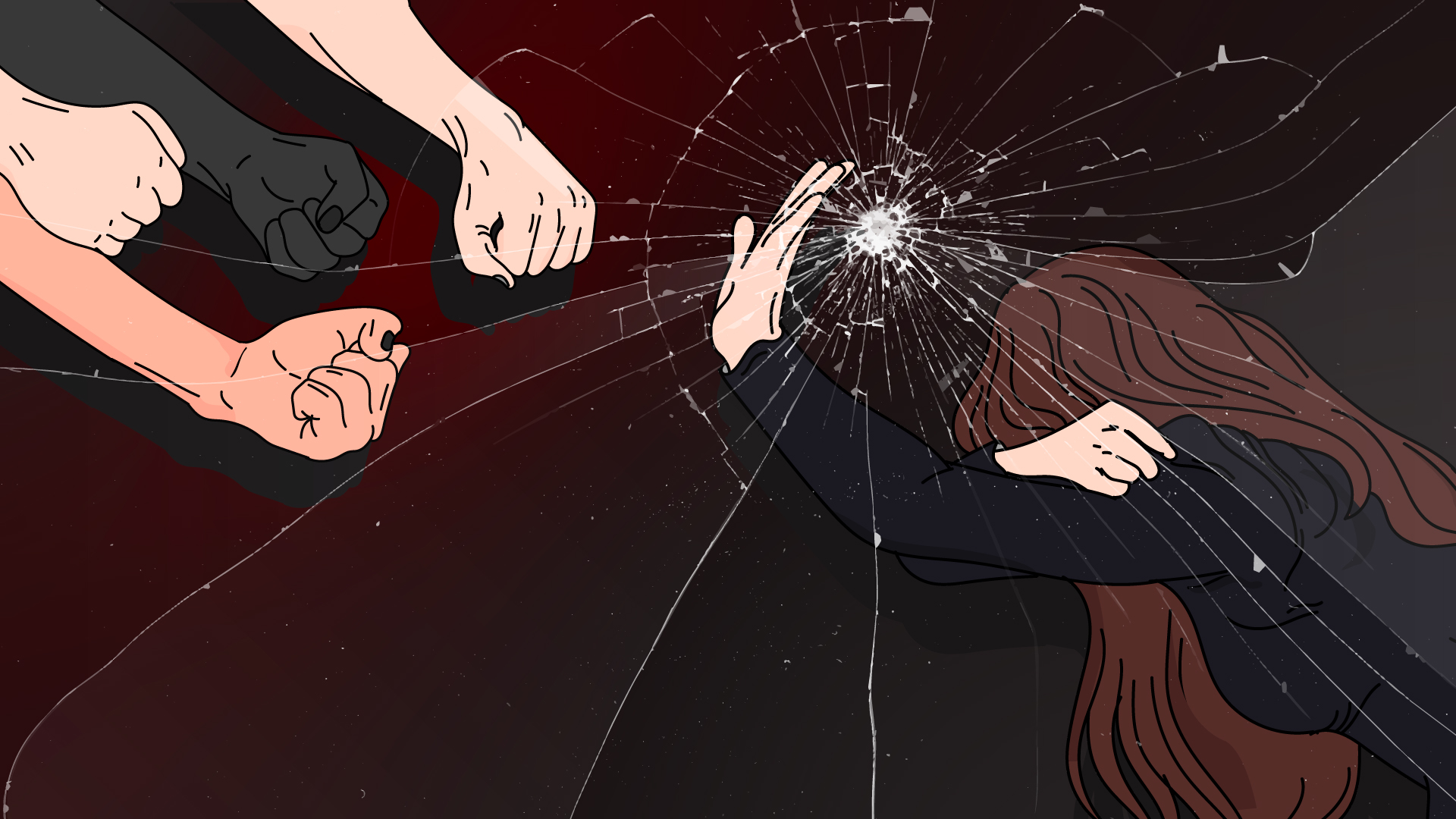
— Anita —
33-year-old Anita has lived in a shelter for almost three years. She gave birth to her second child there two and a half years ago. Anita went to live with her family several times, but she did not find a permanent and welcoming home among them either and so she returned to the shelter. Her first child, born a year after a decade-long marriage, lives with her husband, meaning she is faced with a difficult decision.
“[My husband] asked me if I would return. If this is the only way to live with the two children, yes,” said Anita.
According to women’s rights activists in Kosovo, the state and families often force women to stay or return to violent environments. There are limited employment opportunities, insufficient punishments for abusers and reintegration policies for housing and rehabilitation have not been implemented.
Adelina Berisha, manager of the program for addressing gender-based violence at the Kosovo Women’s Network, said that victims’ families often hinder the economic rights of girls and women by denying them access to inheritance which can be an opportunity to escape from violence.
She added that women are prevented from seeking help due to the fear of the stigma associated with causing a schism in the family for cases of violence that are considered “small” and that come from within.
The women that K2.0 spoke to, upon escaping abusive partners and seeking refuge in their families, were usually asked to return to their partners, especially if they had children. In some cases, their families told them directly to return to their partners in order not to become burdens.
“They tell them that the family cannot be destroyed because of a slap and so on, that’s what they tell women, but not men. They don’t tell men to not destroy the family because of violence,” said Berisha.
After an episode of violence, Nita took her child and sought refuge with her family, determined not to return. However, she faced a lack of support from her family, who insisted that she return to her husband.
“You chose him yourself,” his mother told her.
When Valmira complained about her husband’s violence, her father’s response was always dismissive:
“Go and kill yourself at the village bridge, there’s nothing you can do.”
All the women K2.0 spoke to are considering returning to their abusers if they cannot secure housing for themselves and their children.
Blerta has already returned to her husband.
Feature Image: Arrita Katona / K2.0.
This article is part of the Human Rightivism project, which is funded by the Embassy of Sweden in Prishtina, implemented by the Community Development Fund through its Human Rightivism Program. The views expressed in it do not necessarily reflect the views of the Embassy of Sweden in Prishtina.